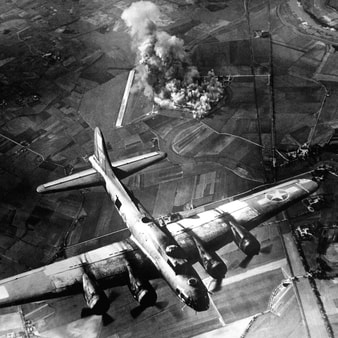 Bombarded On Mission outreaches in Sudan I experienced aerial, artillery and rocket bombardments. However these experiences were insignificant compared to that of my parents in the Second World War. My Father served as a bombardier in the Royal Artillery in the British Army for the whole 6 years of the war. He told me of the Heinkel III’s coming over his military base and turning his barracks into matchsticks as he lay flat on the parade ground with debris blown high into the air pummelling him into the ground! My mother was only 6 years old when she experienced her first bombing. It was September 1940, she was at the circus in Berlin when the British bombed them. She was almost trampled in the stampede to flee the exploding bombs. Many times my mother heard the air raid sirens and had to rush to the air raid shelters. Frequently she saw the green and red parachute flares dropped by the lead bombers to guide the thousand bombers where to unleash their cargo of death and destruction. Her neighbourhood was turned into blazing rubble. 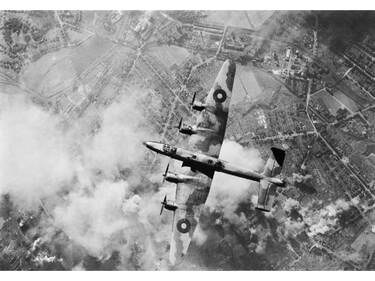 Uncivilised Eminent British War historian, Captain Sir Basil Liddle Hart, described the strategic bombing campaign by RAF Bomber Command during the Second World War as: “The most uncivilised means of warfare that the world had known since the Mongol invasions.” Contrary to International Law British Prime Minister Neville Chamberlain declared that England’s policy of bombing cities in Germany: was “absolutely contrary to international law.” Just before being ousted in Winston Churchill’s coup, Prime Minister Chamberlain announced: “His Majesty’s government will never resort to the deliberate attack on women and children and other civilians, for the purpose of mere terrorism.” Bombers for Victory Shortly after replacing Chamberlain as Prime Minister, Winston Churchill declared: “Our supreme effort must be to gain overwhelming mastery in the air… the bombers alone can provide the means to victory.” Bombing Alone Marshal of the Royal Air Force, Lord Trenchard, as early as 1921, declared that: “The next war could be won by bombing alone, by destroying the enemy’s will to resist.” From this perspective, an entire strategic philosophy developed, which was to dominate British and later American military strategy. 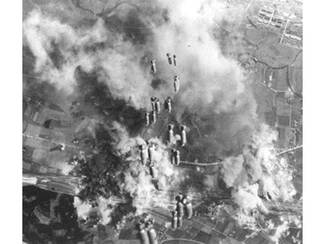 Quick and Easy Victory It was the Italian General Gilulo Douhet who predicted that in the next war, bombers would inflict millions of civilian casualties in a matter of days. Targeting Civilians Stanley Baldwin described this new military philosophy in the House of Commons: “The only defence is offence, which means that you have to kill more women and children, more quickly than the enemy, if you want to save yourselves.” Irrational Predictions Although aircraft was only invented in 1903 and first used militarily in the First World War (1914-1918), books and films had developed a public dread of aerial bombing out of all proportion to its actual threat. Inspired more by the science fiction novels of H.G. Wells and Alexander Korda’s film, Things to Come, Royal Air Force experts declared, as an article of faith: that “the bomber will always get through.” 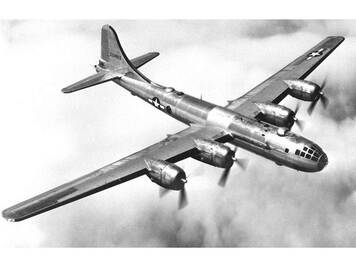 Counter Technology Strangely, these men failed to anticipate that technical developments in one area of warfare are soon matched by counter measures in other areas. Aircraft had advanced rapidly in WWI. Just as gas warfare was soon countered by gas masks, anti-aircraft technology would soon catch up. Night bombers would soon be countered by night fighters. Indirect Warfare Yet many British politicians and military leaders leapt upon this philosophy of faint hearts. After the disastrous battles of WWI, with entire divisions decimated in the battle of the Somme, Passchendaele and Ypres, the British feared to face the German soldier on the battlefield and sought for an indirect way of winning a war. Instead of losing hundreds-of-thousands of soldiers facing the German army on the ground, they would drop millions of tonnes of bombs on German cities from a safe height of ten thousand feet or more. Total Warfare British military strategists concluded that what had actually won the First World War was the British Naval blockade, which had led to starvation conditions in Germany. It became an article of faith amongst the chiefs of staff that the bombing of German cities would achieve victory in the war without the need to commit their armies to the kind of ground war that had caused so many casualties on the Western front in 1914 to 1918. Underlying this philosophy was the assumption that German civilians would crack under the pressure of sustained bombing. Actually, despite enduring the most sustained aerial bombardment for over five years, they never did crack. In fact war production steadily increased. The Spanish Civil War When, during the Spanish Civil War, in 1938, the nationalists bombed Barcelona, reportedly 1,300 inhabitants were killed. From this British aerial experts concluded that each tonne of bombs dropped would inflict 72 casualties. This figure was treated as definitive and on this basis, the Home Office predicted one million casualties in London in the first few days of the next war. But this alarmist nonsense had no basis in fact. In fact the casualty rates at Barcelona were barely 3 casualties to every tonne of bombs dropped. Of the half a million killed in the entire Spanish War, less than 3% were killed by air raids. However, as those facts did not support Bomber Commands’ philosophy, they were suppressed at the time. The Absence of German Heavy Bombers The fact that the German Luftwaffe had no four-engine bombers, nor any plans to produce any in the future, was also suppressed. The entire German Luftwaffe was plainly geared to ground support of the Wehrmacht. The Heinkel 111 and Stuka Ju-87s had very small bomb capacities and were only designed for ground support of Panzer divisions. Plainly Germany had no intention of strategic bombing of cities. Germany’s heaviest bomber did not even have the capacity to carry 10% the payload of bombs that a British Lancaster was designed for. 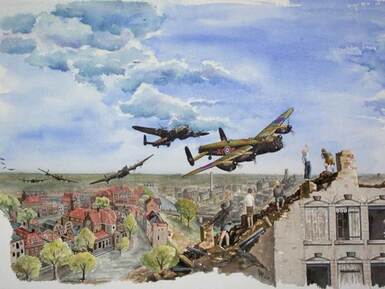 First Blood The earliest British air raids on Germany were quite disappointing for Bomber Command. On 4th September 1939, the day after Britain declared war on Germany, an RAF attack on a German seaplane base resulted in 24 out of the 28 British bombers being shot down. The survivors managed to drop a few bombs, by mistake, on the Danish town of Esbjerg. This was 190 km from the target! Failure Air raids on German warships in Wilhelmshaven were also ineffective. The few bombs that hit their targets either did not explode, or bounced off the German armour causing no damage at all. The early casualties suffered by the British bombers were extreme. Two air raids on oil installations in the Ruhr, by over 300 British bombers achieved no hits and no damage to the plants. Inaccurate and Ineffective Photographic evidence on the RAF bombing raids on the industrial Ruhr in Germany revealed that less than 10% of British bombers got within five miles of their target and that the bombs dropped by these aircraft were dispersed in an area 75 square miles around the intended target. During the air raids of 1940 and 1941, more British aircrew died than German victims of the bombings. More Failure The German battle cruisers at Brest, Scharnhorst and Gneisenau, were attacked by 1,723 sorties. Almost 2,000 tonnes of bombs were dropped on these ships, yet the Scharnhorst and Gneisenau survived these air raids, mostly unscathed. Disproportionate Resources RAF Bomber Command received more funding, labour, strategic materials and equipment than all other branches of the British military combined. The labour of thousands of workers in factories all over Britain was being scattered across Germany to no good purpose. Raw materials that could have been better used to build tanks, ground support aircraft, fighters, dive bombers, machine guns, rifles, medical supplies, etc. we’re being squandered to fulfil an obsession with the bomber as the war-winning weapon to beat all weapons. Squandered Resources Yet, far from winning the war, Bomber Command, almost lost it by absorbing the resources that could have been used to equip Britain with genuine weapons of war. Instead of recognising that the Strategic Bombing Campaign was a failure, the chiefs of staff determined to concentrate on the bombing of cities. A policy of terrorising the German population became a fundamental component of the Strategic Bombing Campaign of the RAF. 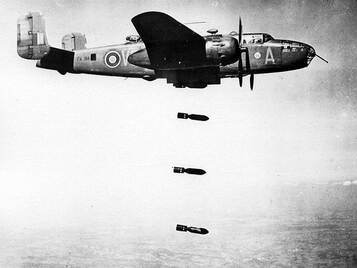 Saturation Bombing of Cities Recognising that navigational aids were deficient and that the bombsights used were highly inaccurate, Bomber Command determined to concentrate entire Air Wings into Thousand Bomber Raids on German cities. These night time saturation bombings wouldn’t be able to miss their targets, because they would concentrate on the centre of large cities. Killing Germans, any Germans, became the policy of Bomber Command. Between 1940 and 1945, 61 German cities were destroyed in bombing campaigns by RAF Bomber Command. At least two million Germans civilians were killed by the air raids of the RAF and USAAF. 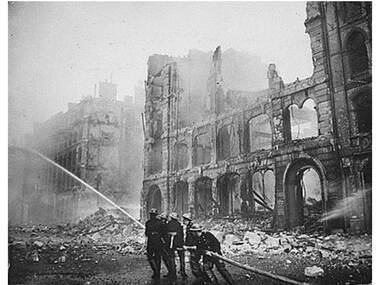 Illegal Targeting of Civilians Indiscriminate bombing was internationally outlawed. The Washington Treaty of 1922 expressly forbade the use of bombing against civilian populations. United States government propaganda films condemned the Japanese Empire for bombing of cities, such as Shanghai. Yet, upon America’s entry into the war, U.S. General, H.H. Arnold, advocated the policy of strategic bombing of cities, such as they had condemned in Shanghai, as “the only way” that Germany could be beaten. Non-Combatants Winston Churchill commented: “The air opened paths along which death and terror could be carried far behind the lines of the actual enemy; to women, children, the aged, the sick, who in earlier struggles would perforce have been left untouched.” Provoking Counter Reaction Air Ministry historian, Dennis Richards, in the official History of the Royal Air Force (1939-1945) wrote: “If the Royal Air Force raided the Ruhr, destroying oil plants with its most accurately placed bombs and urban property for those that went astray, the outcry for retaliation against Britain might prove too strong for the German Generals to resist. Indeed, Hitler himself would probably lead the clamour. The attack on the Ruhr was therefore an informal invitation to the Luftwaffe to bomb London. 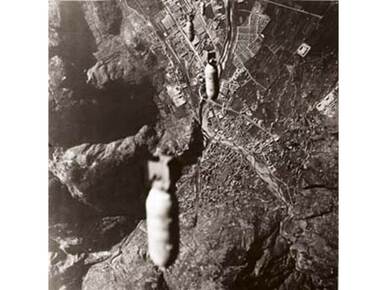 The Great Decision The Principal Secretary to the Air Ministry in Britain reported: “We began to bomb objectives on the German mainland before the Germans began to bomb objectives on the British mainland… Because we were doubtful about the psychological effect of the truth, that it was we who started the strategic bombing offensive, we have shrunk from giving our great decision of 11 May 1940, the publicity it deserves.” (Bombing Vindicated by J. M. Spaight, Principal Secretary to the Air Ministry.) Total Warfare In an interview with the New York Times, 10 January 1946, Air Marshal Tedder declared that Germany had lost the war because she had not followed the principle of “Total Warfare.” War Psychosis Dennis Richards in The Royal Air Force, 1939-1945, The Fight at Odds observed: “Retaliation was certain if we carried the war into Germany… there was a reasonable possibility that our capital and industrial centres would not have been attacked if we had continued to refrain from attacking those of Germany… the primary purpose of these raids was to goad the Germans into undertaking reprisal raids of a similar character on Britain. Such raids would arouse intense indignation in Britain against Germany and so create a war psychosis without which it would be impossible to carry on a modern war.” 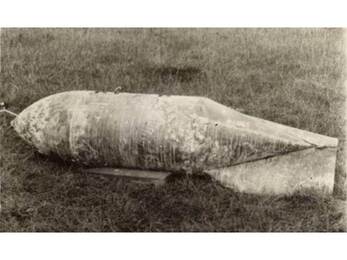 Emotional Engineering British Jurist, F. J. P. Veale, in Advance to Barbarism, observed: “It is one of the greatest triumphs of modern emotional engineering that, in spite of the plain facts of the case, which could never be disguised, or even materially distorted, the British public, throughout the Blitz period (1940-1941), remained convinced that the entire responsibility for the sufferings it was undergoing, rested on the German leaders. Too high praise cannot, therefore, be lavished on the British emotional engineers for the infinite skill with which the public mind was conditioned prior to and during a period of unparalleled strain. The inhabitants of Coventry, for example, continued to imagine that their sufferings were due to the innate villainy of Adolf Hitler, without a suspicion that a decision, splendid or otherwise, of the British War Cabinet, was the decisive factor in this case.” Terror Bombing Sir Archibald Sinclair, Secretary for Air, declared: “I am in full agreement of terror bombing. I am all for the bombing of working class areas in German cities.” On 5 July 1941, the city of Münster in Germany was bombed by 63 British Wellington Bombers, just after midnight. The city was unprepared and without any anti-aircraft protection. By the end of the war more than 90% of the old city of Münster was destroyed. 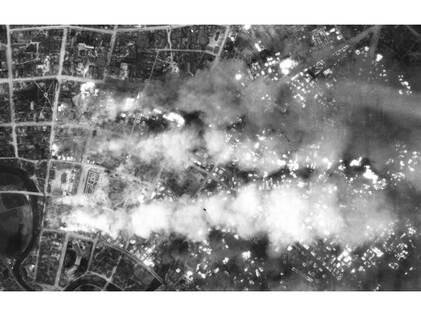 Lubeck On the night of 28 March 1942, 234 Wellington and Sterling Bombers dropped over 400 tonnes of bombs on Lübeck. 1,468 buildings were destroyed, 2,180 were seriously damaged and 9,103 were lightly damaged. 62% of all buildings in Lübeck were damaged or destroyed. Cologne On the night of 30 May 1942, Cologne was destroyed by RAF Bomber Command. 2,000 tonnes of high explosives were delivered by 1,046 bombers in 90 minutes. Luftwaffe Commander, Hermann Göring, refused to believe the reports: “It’s impossible! That many bombs cannot be dropped in a single night!” Bremen On 25 June 1942, the British launched 1,067 bombers against the German port city of Bremen. This air raid succeeded in killing 85 people, destroying 572 houses, for the loss of 53 aircraft. 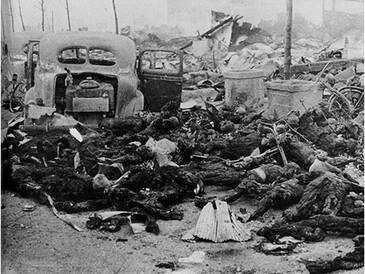 Contrasts in Casualties Because the Luftwaffe was not equipped with strategic bombers, the contrast between casualties caused by the Blitz in England and the saturation bombing of German cities is stark. Coventry lost 100 acres through bombing. Approximately 300 people in Coventry lost their lives due to air raids by the Luftwaffe. Yet the RAF bombing of Hamburg killed over 70,000 civilians. Firebombing Hamburg Between 24 July and 2 August 1943, RAF Bomber Command unleashed Operation Gomorrah against the coastal town of Hamburg in Germany. 8,000 pound blockbusters and 4,000 pound “cookie” bombs knocked out roofs and windows. Subsequent waves dropped 350,412 incendiary bombs to start fires. Crews of Halifax Bombers reported a mass of raging fires in Hamburg, rising to 19,000 feet. Lead Bombers dropped parachute flare markers to guide the following bombers as to where to release their bombs in the dark. As the waterworks were destroyed first, there was no running water with which the fire brigade could extinguish the sea of flames, which soon engulfed the entire city. 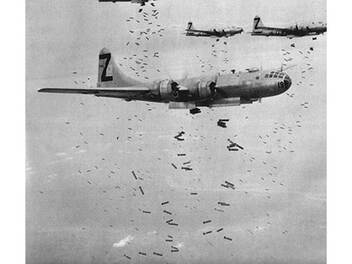 Night and Day The next day, 25 July, U.S. Army Air Force B17 Flying Fortress Bombers, unleashed further destruction upon the stricken city of Hamburg. The British lost only 12 aircraft during the night raid. The Americans lost 15 aircraft during their day raid. For 10 days and nights, the RAF and USAAF kept up a relentless day and night bombardment of the doomed city. 16,000 residential buildings in Hamburg were destroyed. Amidst the Ruins Incredibly, by the end of 1943, the aircraft industry, chemical industry and submarine building factories were back to almost pre-bombing capacity. However, 70,000 civilians had died in the 10-day firebombing of Hamburg. The Destruction of Dresden Between 13 and 15 February 1945, the city of Dresden was destroyed by over 2,000 bombers of the RAF and the USAAF. Dresden had been chosen as a target by the Soviets. Joseph Stalin persuaded Churchill and Roosevelt at Yalta to target Dresden, which was a major receiving area for refugees. The city was swollen with civilians fleeing the Red Army’s rapid and destructive advance. On the evening of 13 February 1945, 796 Lancaster’s and 9 de Havilland Mosquitos dropped 1,478 tonnes of high explosive and 1,182 tonnes of incendiary bombs between 22:14 and 22:22. Three hours later another 1,800 tonnes of bombs were dropped by a second group of Lancasters. 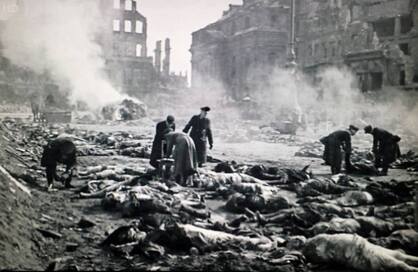 Successful The first official reports on the air raid on Dresden described it as one of the most successful of the Thousand Bomber Raids: “Our pilots report that as there was little flak they were able to make careful and straight runs over the targets without bothering much about their defences; a terrific concentration of fires was started in the centre of the city.” The British described the raid as one of the “powerful blows” promised by the Allied leaders to Joseph Stalin at Yalta. 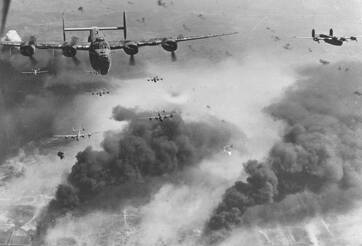 Disgrace Allied Bombers who were involved in the firebombing of Dresden later recalled the sense of shame they felt when no anti-aircraft fire, or night fighters, opposed their bombing of the city. Numerous historians and jurists have described the bombing of the cities of Germany as a war crime and a holocaust. Yet British Air Marshal “Bomber” Arthur Harris, the Bomber Command chief directly responsible for the saturation bombing of civilian centres, was knighted for his efforts! There was a time when knights were renowned for protecting women and children – not targeting them. 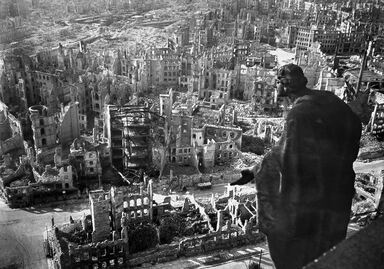 Scandal News reports from neutral countries, such as Sweden and Switzerland, pointed out that Dresden was one large hospital city swollen with refugees fleeing the advancing Red Army. They also pointed out that the main railway station on the outskirts of town was unaffected by the bombing which targeted the residential section of town. 22 Hospitals had been destroyed in Dresden. One British commentator asked: “Who the devil is going to get anything out of it? We contribute the bombs and the machines and the crews who don’t return from these raids. The Dresdeners themselves don’t get anything out of it, naturally. The only ones who look like they’re getting anything are the Russians – they get Dresden at our expense. I don’t see any reason why we should go and kill people for the benefit of the Russians alone. Do you?” Bombing Refugees An Associated Press radio despatch put out from Paris was broadcast throughout the United States describing the: “Deliberate Terror Bombings of German population centres… carried out by heavy bombers of the Allied Air Forces on residential sections of Berlin, Dresden… with the unprecedented day and night assault on the refugee crowded capital, with civilians fleeing from the Red Tide in the East.” 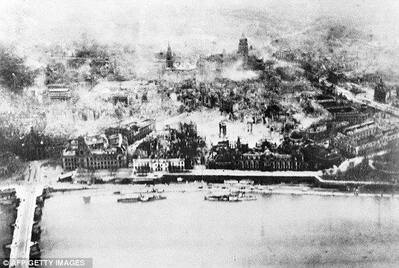 Exceptional Cowardice Americans had traditionally viewed with suspicion the RAF Bomber Command strategy of bombing cities. Now Americans learned that American Bombers were involved in the same terror raids on civilians. The report noted that, as all available German Air Forces were concentrated on the Eastern Front to combat the Red Army offensive which threatened to destroy Germany and all of Europe, the targeting of civilian centres in Germany seemed “exceptional cowardice.” Military Objectives As this AP News Report was widely broadcast by radio throughout the United States, General Eisenhower and General Henry Arnold cabled General Spaatz, to clarify that the USAAF was “only targeting military objectives” and not engaging in area bombing of cities. General Carl Spaatz gave an ambiguous and dishonest assurance that the USAAF only attacked “military objectives.” This of course was not true. 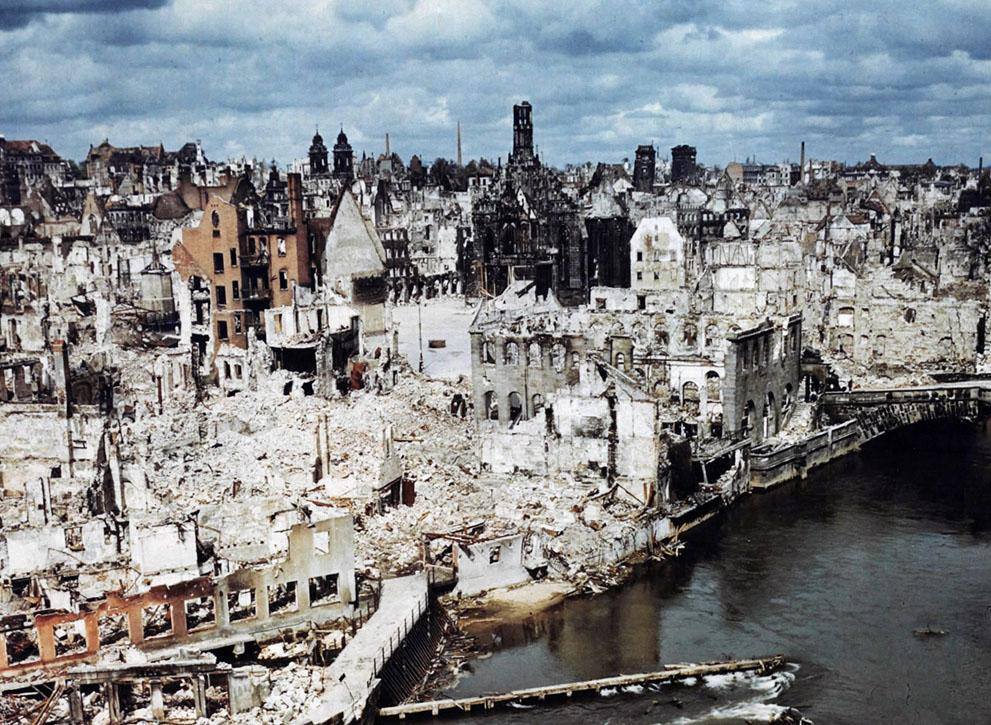 Barbaric Bombing American Historian Professor Harry Elmer Barnes, wrote: “It was the indiscriminate bombing of civilians by the so-called strategic air forces during the Second World War which culminated in the destruction of Dresden (a wholly non-military objective) in February 1945, that completely pulverised the code of civilised warfare and returned the treatment of military opponents and civilians to the level of the primal warfare that had prevailed among the savages, the Assyrians and the Medieval Mongols. On the basis of the most authoritative British sources, Mr Veale demonstrates clearly that it was the British and not the Germans who introduced indiscriminate strategic bombing, despite the efforts of Hitler to avert this reversion to barbaric practices.” Kassel The German town of Kassel suffered over 300 air raids, some by Thousand Bomber Raids, the British by night and the Americans by day. When on 4 April 1945, the city surrendered barely 15,000 remained of an original population of 250,000. Wiener Neustadt Wiener Neustadt in Austria emerged from the air raids with only 18 houses intact and its population of 45,000 reduced to just 860.  The True Heroes The London Times Review on the British official History of the Strategic Air Offensive, commented: “One closes these volumes feeling uneasy, that the true heroes of the story they tell are neither the contending Air Marshals, nor even the 58,888 officers and men of Bomber Command who were killed in action. The heroes were the inhabitants of the German cities under attack; the men, women and children who stoically endured and worked on among the flaming ruins of their homes and factories, up till the moment when the Allied Armies overran them. 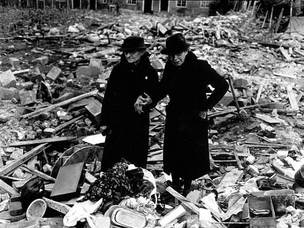 Going Too Far In the course of watching a British propaganda film showing the bombing of German cities from the air, British Prime Minister Winston Churchill suddenly sat bolt upright and asked Lord Casey: “Are we beasts? Are we taking this too far?” Propaganda War Throughout the world there were shockwaves of revulsion against the bombing of Dresden. This compelled the propaganda ministries to seek to generate as much counter accusations of atrocities against the enemy to justify the targeting of whole cities for destruction. Soon, pictures of starving inmates of labour camps were being published widely. The fact that the starvation was caused by the Naval Blockade and Arial Bombardment of Germany was, of course, not pointed out. 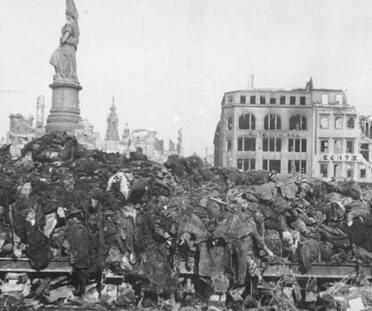 Distortion As virtually every harbour, railway junction and bridge in Germany had been bombed, all basic services had broken down in the final months of the war. Starvation was widespread and epidemics of typhus had erupted. Even pictures of German civilians laid out in the centre of bombed out towns were published with the caption that these were victims of German death camps. American soldiers in Dachau had German civilians drag victims of typhus into the showers, which the Americans then claimed had been gas chambers. Later all parties agreed that there never had been a gas chamber at Dachau and the Americans were ordered to dismantle the structure they had built after the war to show to tourists. By then virtually all the prison wardens at Dachau had been massacred by the American forces for the crime which they now admitted had not taken place there. Admission of Guilt The American judge at the Nuremberg Trials, Nicholas Biddle, later acknowledged that: “Germany waged a much cleaner war than we did.” Winston Churchill acknowledged that had Germany won the war he could have been tried as a war criminal for having authorised the bombing of cities. Marshall of the RAF, Lord Trenchard, once declared: “I can’t write what I mean, I can’t say what I mean, but I expect you to know what I mean.” General Purpose Dud The official historian of the Strategic Air Offensive, Sir Charles Webster, noted that half of the bomber sorties made over Germany were a complete waste of time. The weapon with which most British bombers were armed, the general-purpose bomb, was so unreliable and ineffective as to constitute a waste of strategic resources: “Between 1939 and 1945, Bomber Command dropped over half a million 500 pound general purpose bombs and nearly 150,000, 250 pound general purpose bombs. Not only were these bombs unsuited to the task for which they were used, because of their general characteristics, which consisted of an unhappy compromise between strength of casing and weight of explosive, but they were also relatively inefficient and all too often defective, weapons.” Poor Workmanship It is estimated that nearly 40% of all bombs dropped by the British in 1940, failed to detonate. Even the 4,000 pound bombs frequently broke up on impact, without exploding. It was observed that Bomber Command wasted thousands of aircrew who lost their lives carrying defective bombs to Germany. This was described as bad as “sending men into battle with their rifles loaded with blanks.” 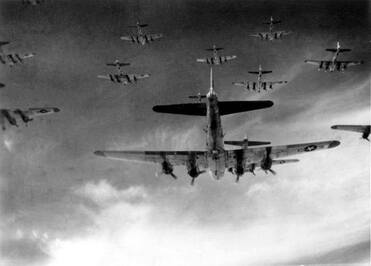 Evaluating the Strategic Bombing Campaign It is now clear that General Douhet and Trenchard were wrong. Bombers did not win the war. In fact, one can safely say that not only did the bombing of cities not shorten the duration of the war, but the Strategic Bombing Campaign actually prolonged the war and exponentially increased the death toll of that war. Unethical and Counter Productive Unwilling to face the German soldier on the battlefield, these strategists were prepared to drop bombs on his family from a safe height of over 10,000 feet. This indirect way of winning a war proved to be an illusion. Over two million people were killed and millions more injured and crippled as a result. The strategic bombing of cities proved to be not only unethical, but counterproductive. “When you besiege a city for a long time, while making war against it to take it, you shall not destroy its trees…” Deuteronomy 20:19 Dr. Peter Hammond Reformation Society P.O. Box 74 Newlands 7725 Cape Town South Africa Tel: 021-689-4480 Email: [email protected] www.ReformationSA.org www.frontlinemissionsa.org www.hmsschoolofchristianjournalism.org Bibliography and Recommended Books: The Destruction of Dresden by David Irving, McMillan, 1963 The Evolution of Warfare by Basil Liddle Hart, Baber and Faber, 1946 Advance to Barbarism by F. J. P. Veale, Miter Press, London The Strategic Air Offensive Against Germany by Her Majesty’s Stationery Office, London, 1961 The Royal Air Force, 1939-1945: The Fight at Obs, H. M. Stationery Office The Night Hamburg Died by Martin Caidin, Ballantine Books, 1960 Death of a City by Michael McLaughlin, Historical Review Press, Brighton History of the Second World War by Captain Basil Liddle Hart, Cassell, London Firestorm – The Bombing of Dresden, 1945 by Paul Addison and Jeremy Craig An audio CD of this lecture, as presented to The Reformation Society, is available from: Christian Liberty Books, PO Box 358, Howard Place 7450, Cape Town, South Africa, Tel: 021-689-7478, Fax: 086-551-7490, Email: [email protected] and Website: www.christianlibertybooks.co.za
0 Comments
Leave a Reply. |
Categories
All
Archives
October 2022
|
 RSS Feed
RSS Feed